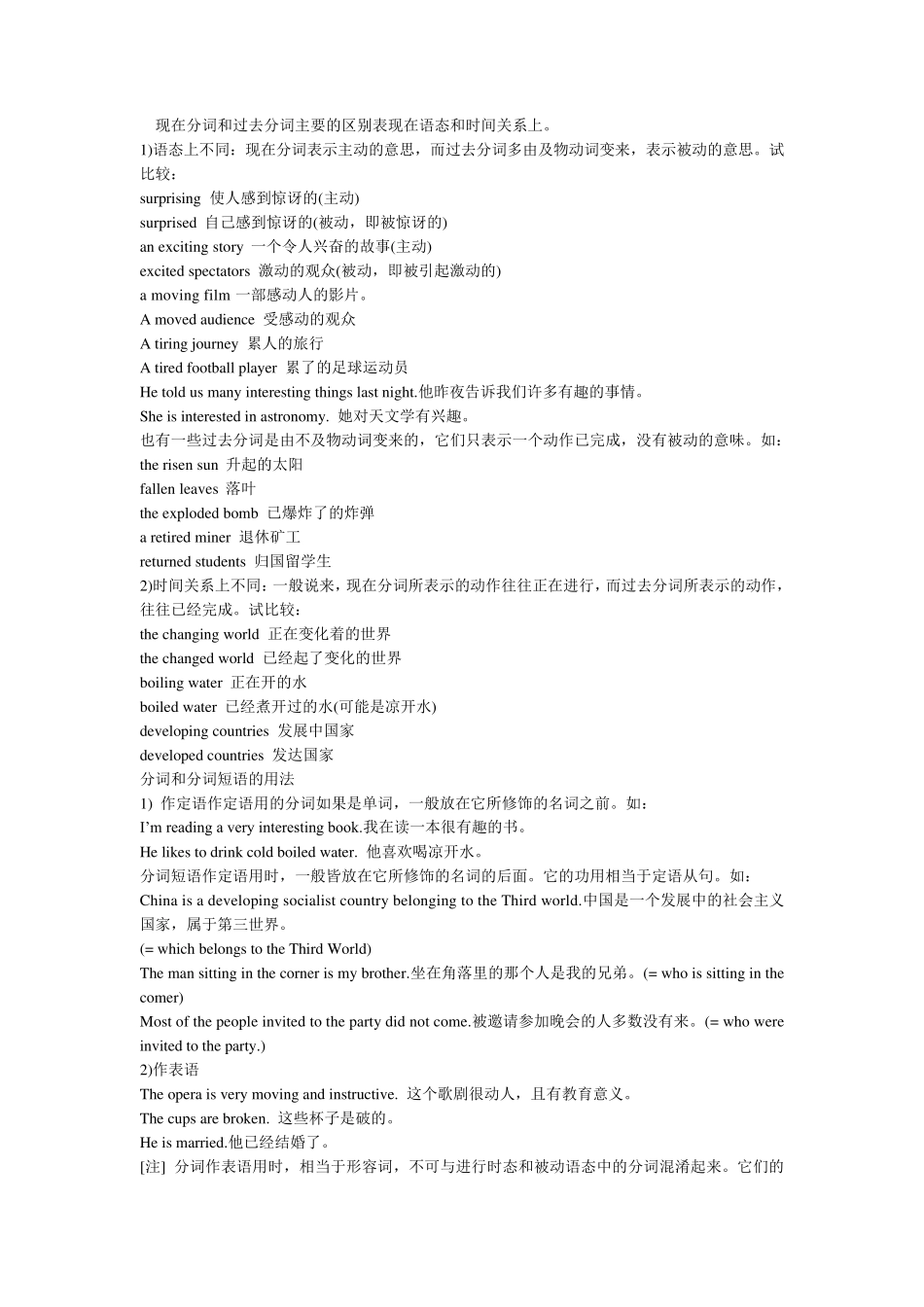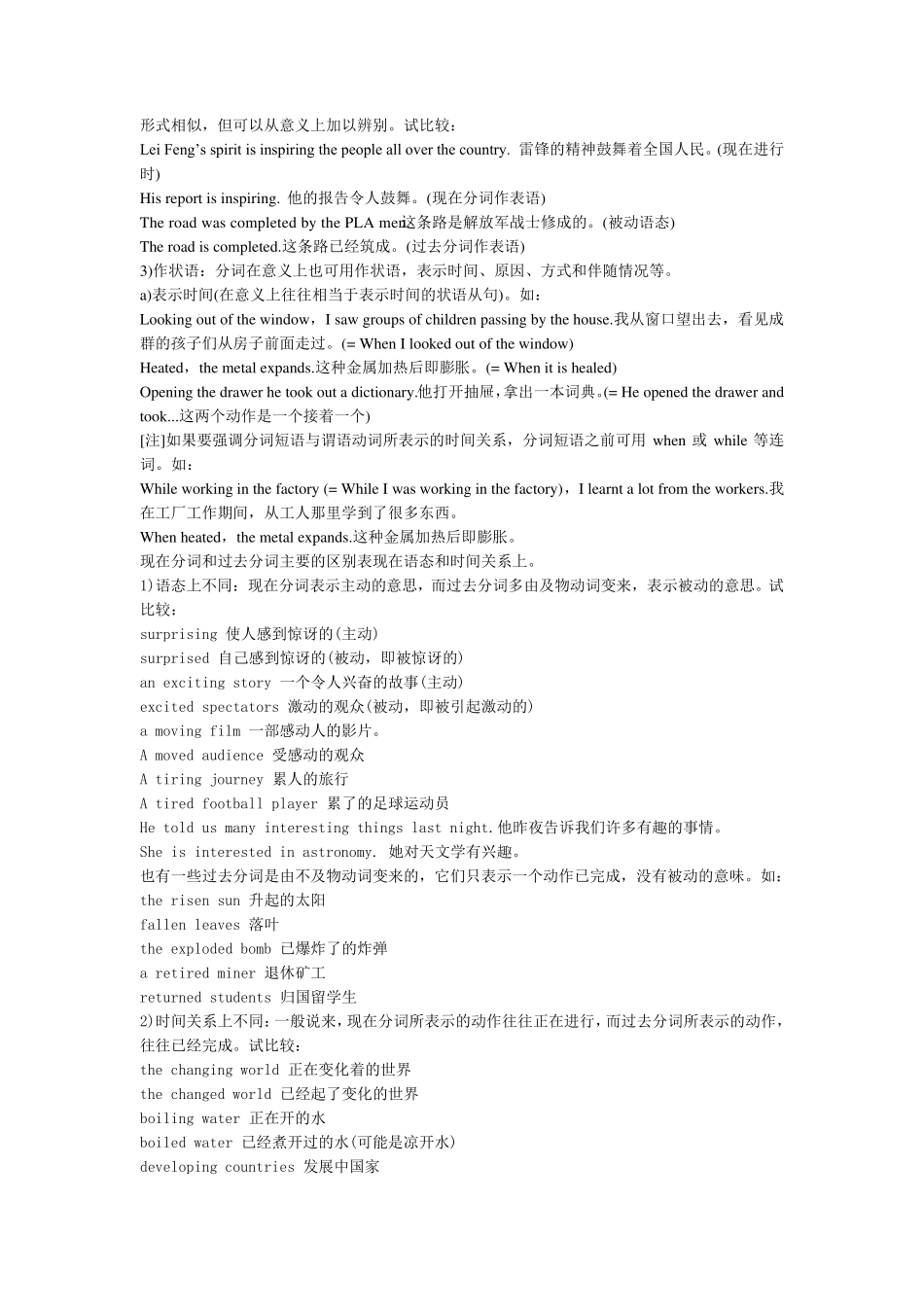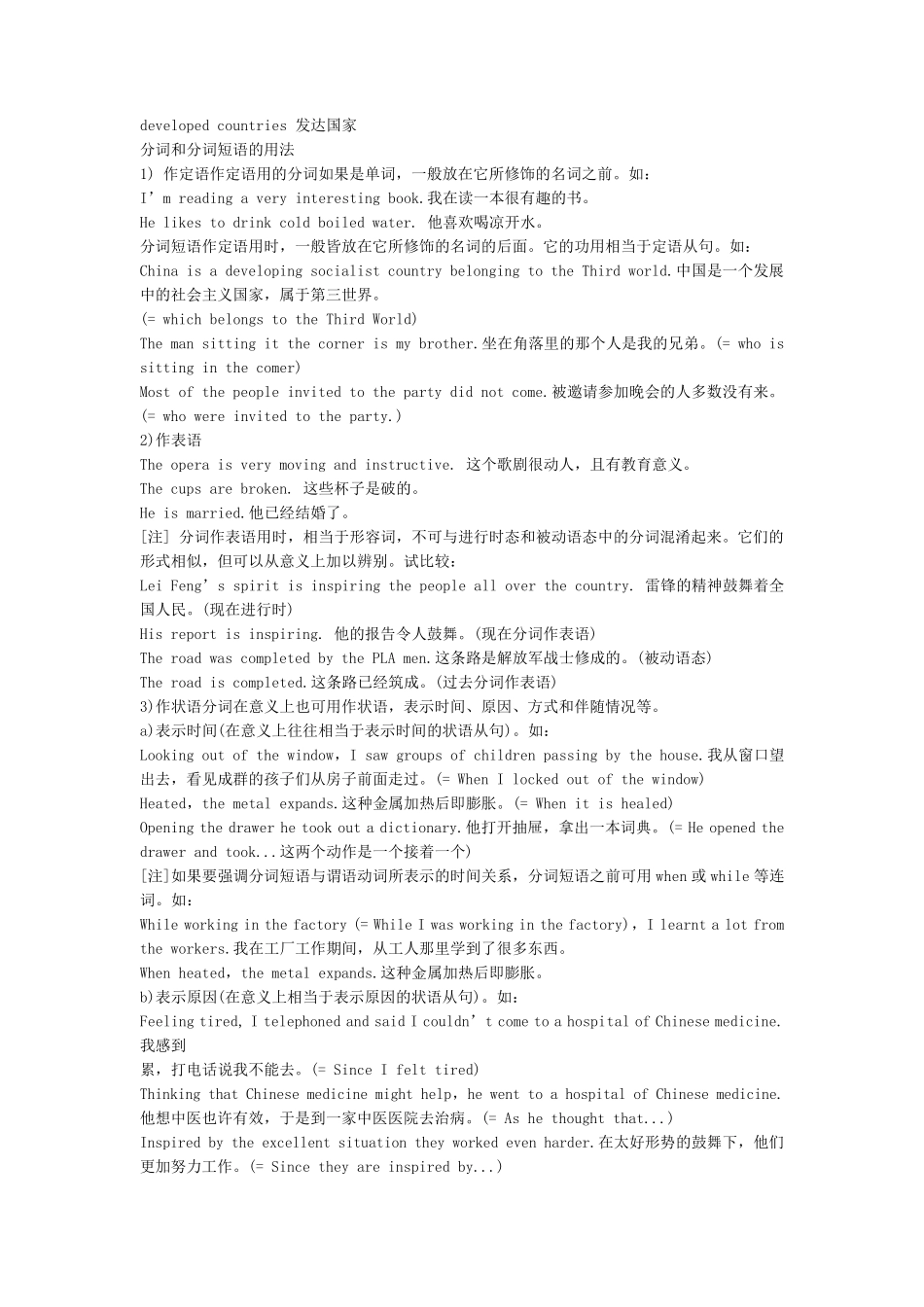现在分词和过去分词主要的区别表现在语态和时间关系上。 1)语态上不同:现在分词表示主动的意思,而过去分词多由及物动词变来,表示被动的意思。试比较: surprising 使人感到惊讶的(主动) surprised 自己感到惊讶的(被动,即被惊讶的) an exciting story 一个令人兴奋的故事(主动) excited spectators 激动的观众(被动,即被引起激动的) a moving film 一部感动人的影片。 A moved audience 受感动的观众 A tiring journey 累人的旅行 A tired football player 累了的足球运动员 He told us many interesting things last night.他昨夜告诉我们许多有趣的事情。 She is interested in astronomy. 她对天文学有兴趣。 也有一些过去分词是由不及物动词变来的,它们只表示一个动作已完成,没有被动的意味。如: the risen sun 升起的太阳 fallen leaves 落叶 the exploded bomb 已爆炸了的炸弹 a retired miner 退休矿工 returned students 归国留学生 2)时间关系上不同:一般说来,现在分词所表示的动作往往正在进行,而过去分词所表示的动作,往往已经完成。试比较: the changing world 正在变化着的世界 the changed world 已经起了变化的世界 boiling water 正在开的水 boiled water 已经煮开过的水(可能是凉开水) developing countries 发展中国家 developed countries 发达国家 分词和分词短语的用法 1) 作定语作定语用的分词如果是单词,一般放在它所修饰的名词之前。如: I’m reading a very interesting book.我在读一本很有趣的书。 He likes to drink cold boiled water. 他喜欢喝凉开水。 分词短语作定语用时,一般皆放在它所修饰的名词的后面。它的功用相当于定语从句。如: China is a developing socialist country belonging to the Third world.中国是一个发展中的社会主义国家,属于第三世界。 (= which belongs to the Third World) The man sitting in the corner is my brother.坐在角落里的那个人是我的兄弟。(= who is sitting in the comer) Most of the people invited to the party did not come.被邀请参加晚会的人多数没有来。(= who were invited to the party.) 2)作表语 The opera is very moving and instructive. 这个歌剧很动人,且有教育...


